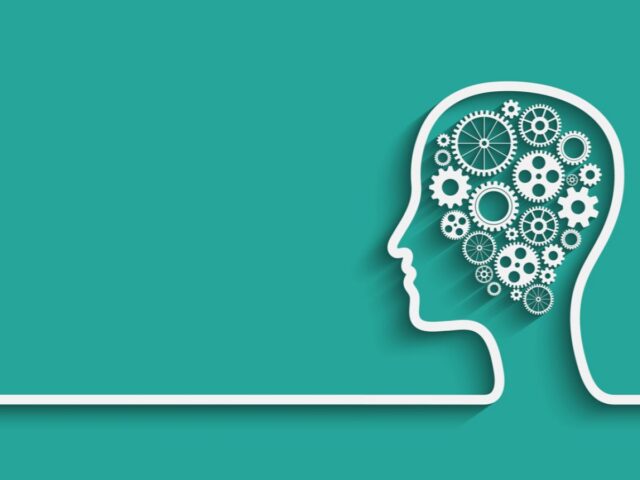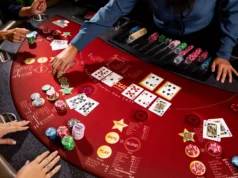
Playing card games like poker has numerous health benefits for your brain. It is a great way to stay sharp and alert as it requires you to think strategically and use logic. Regularly playing card games helps to increase concentration and focus, while also teaching problem-solving skills. It also helps to improve your memory and cognitive abilities, as it encourages you to remember the cards and their values in order to develop a winning strategy.
Moreover, playing card games like poker has many psychological health benefits too. It is a great way to relieve stress and anxiety, and can also help you to relax. It is also a great way to socialize and connect with others, improving your emotional health. Furthermore, it can help to boost your self-esteem and confidence, as you gain more experience in the game and learn to become a better player.
In addition to the mental health benefits, playing card games like poker can also help to keep your mind healthy and active. It is a great way to stay mentally active, as it requires you to use your brain in a variety of ways. Playing card games also helps to keep your mind sharp and alert, which can help to improve your overall brain health.
Overall, playing card games like poker has numerous health benefits for your brain. It is a great way to stay alert and sharp, while also helping to reduce stress and anxiety. It is also a great way to boost your self-esteem and confidence, as you gain more experience and become a better player. Finally, it is a great way to stay mentally active and keep your mind healthy, as it requires you to use your brain in a variety of ways. All in all, the health benefits of playing card games like poker are clear, making it an ideal activity for keeping your brain healthy.
Poker is a popular game of chance and skill, requiring players to think strategically, make intelligent decisions and keep track of the cards that have been played. It is often seen as a way to relax with friends or pass the time, but numerous benefits to playing poker can improve your cognitive abilities. While there may be risks associated with gambling in general, several strategies can help you mitigate these risks and reap the rewards of improved mental acuity.
Improved memory

Regularly playing poker helps to hone your memory skills as you need to pay close attention to what cards have been played and remember how other players tend to bet. It would help to remember which cards have already been seen to make more informed decisions. With practice, you will also improve your ability to recall information when placing bets quickly and efficiently and other skills that might benefit poker players, such as mathematics.
Improved decision-making
Poker is a game of strategy, not luck, and the most successful players must be able to evaluate potential risks and rewards when making decisions. Regular playing helps refine this skill by teaching you how to weigh the various options available, consider all the variables involved in a situation and make intelligent choices – both on and off the table. It can help you become a better negotiator or problem-solver in other areas of life.
Increased focus
Maintaining a focused and clear state of mind is essential when playing poker. Players must keep track of many variables while staying attentive to the ongoing game, all while trying not to be distracted by other players’ behavior or emotions. It helps improve your concentration skills, both at the table and in everyday life, as you learn to stay focused on essential tasks for extended periods. Moreover, playing poker in a noisy environment and with multiple distractions helps to improve your ability to block out intervening noise.
Smart betting

Knowing when to bet and how much to invest is crucial for successful poker players. Developing smart betting strategies that consider the pot limit, your opponent’s playing style, and other factors is essential. Practicing smart betting can help you better evaluate potential risks and rewards in any situation and control your emotions when placing bets. Furthermore, poker can help you understand the concept of expected value and calculate expected returns over time.
Improved confidence
Playing poker can help build self-confidence by providing wins and losses alike. With practice, you will learn how to handle both outcomes with poise, learning from what went wrong or right in each game. It helps you stay focused on making intelligent decisions instead of chasing after luck or throwing money away due to frustration or fear. Additionally, mastering poker strategies and achieving consistent wins can help boost your self-image, providing a sense of accomplishment.
Improved social skills
Poker requires players to interact with others despite being an individual game. Socializing while playing helps you understand how emotional cues affect your opponent’s decisions, an essential skill in real-life communication. Every interaction with another player – whether it’s friendly banter or spot analysis – adds to your arsenal of social tools. It also allows you to broaden your network by meeting like-minded people who share your interests.
How to mitigate the risks when playing poker

While playing poker has several advantages, risks are involved, such as potential financial losses or the temptation to make bad decisions. However, there are some strategies you can use to reduce your risk when playing poker.
Set a budget
Before playing, set a budget for yourself and stick to it. Make sure you only invest what you can afford to lose without affecting your daily lifestyle. It ensures that if luck is not in your favor this time, you will still have enough money for other expenses.
Stay informed
Keep yourself updated on the latest news and trends in poker so that you know what common strategies professional players use. It will help give you an edge over those who don’t take the necessary steps to stay informed. Additionally, researching the rules and regulations of the game before diving in will ensure you don’t run afoul of any laws.
Take regular breaks
It is easy to get carried away when playing poker, so taking regular breaks is essential. It will help you stay in control and maintain focus throughout the game. Using a timer or setting alarms on your phone can be helpful.
Seek help
If you are in a financial or emotional situation due to playing poker, it is crucial to seek professional help. Many organizations and professionals can provide support and advice on managing the risks associated with gambling.
Use responsible gambling resources
Responsible gambling websites and organizations can provide helpful tips on responsible gambling. They also offer resources such as self-exclusion tools, financial counselors, and other support services to help you achieve the most out of your poker experience while avoiding the potential risks and dangers.









